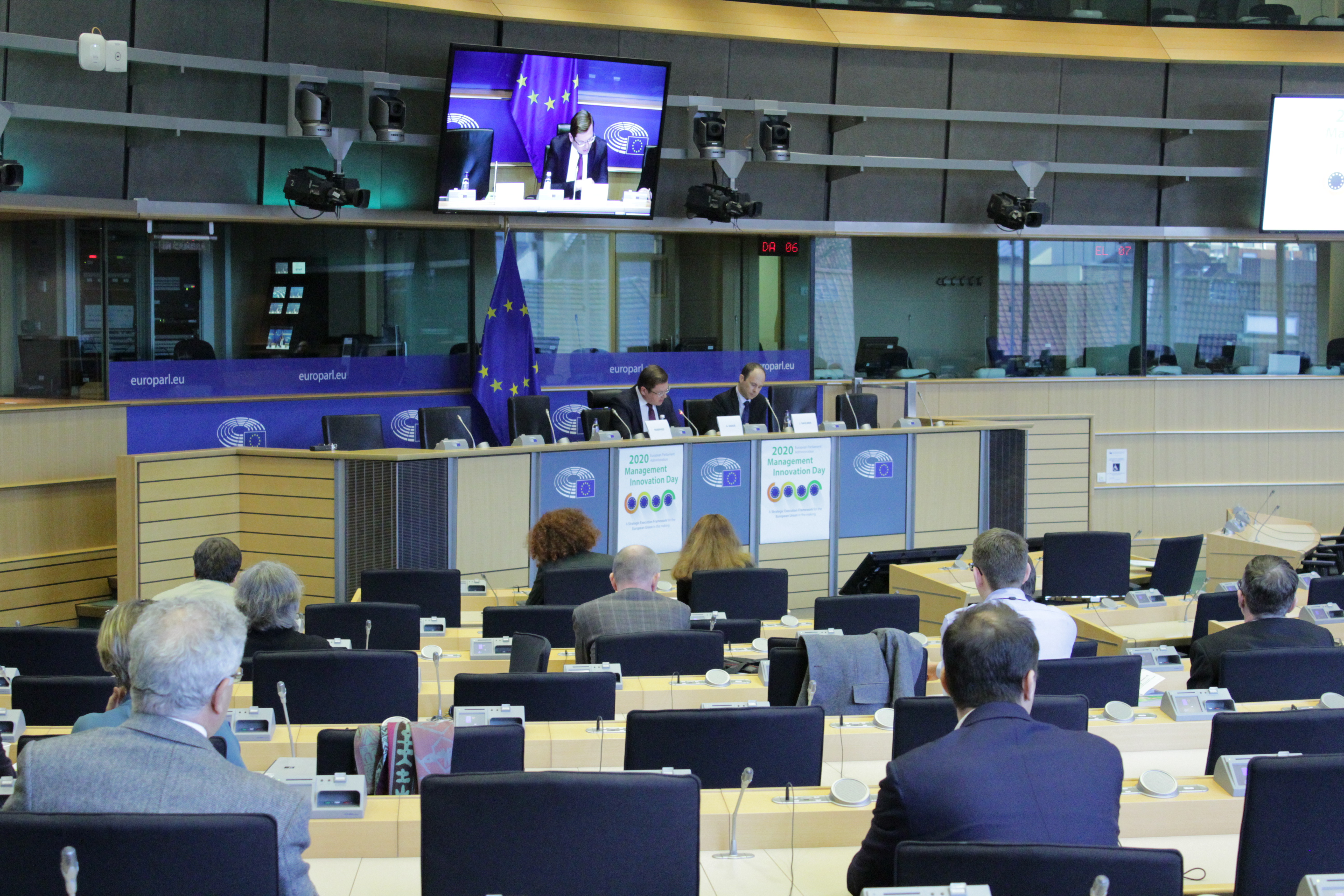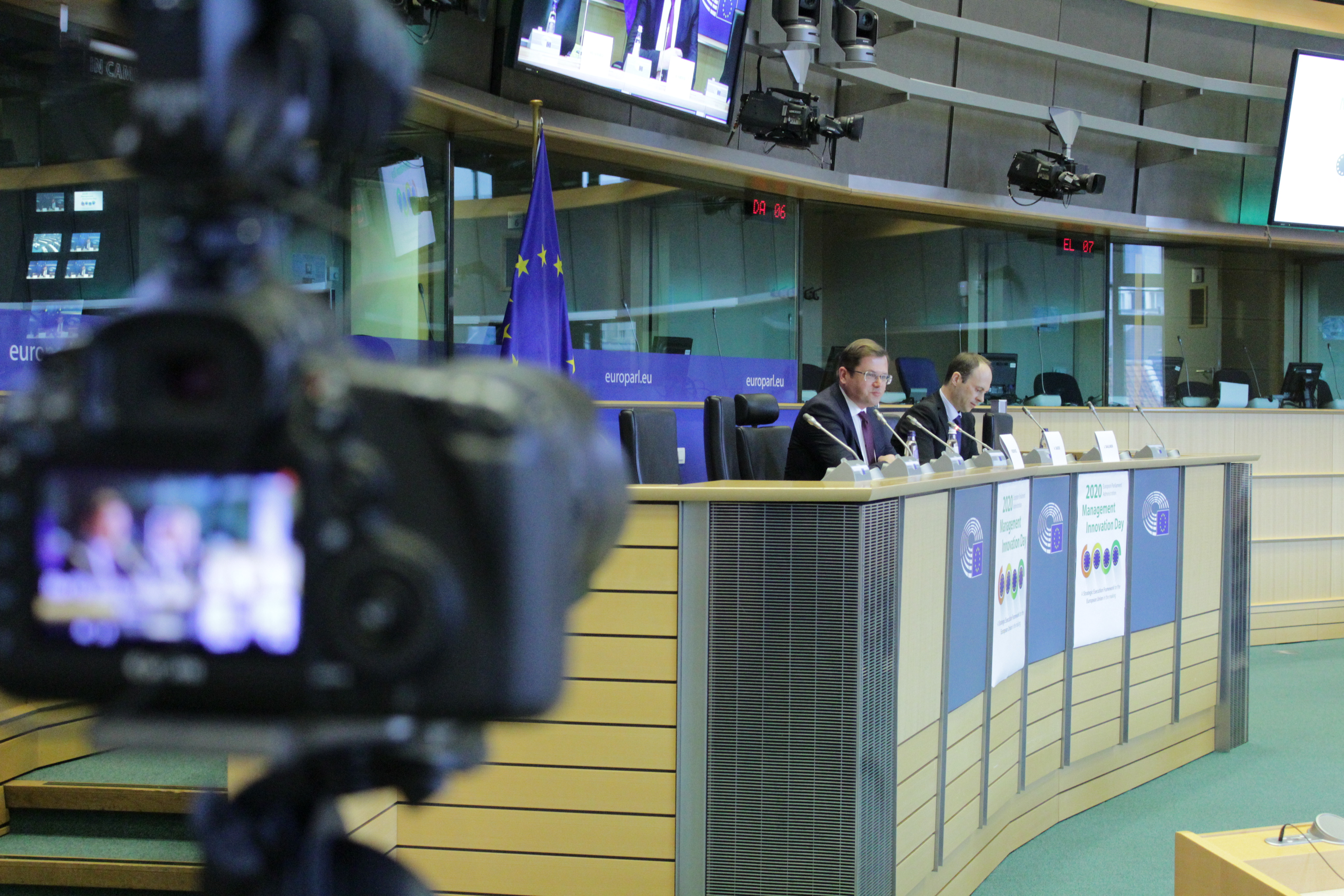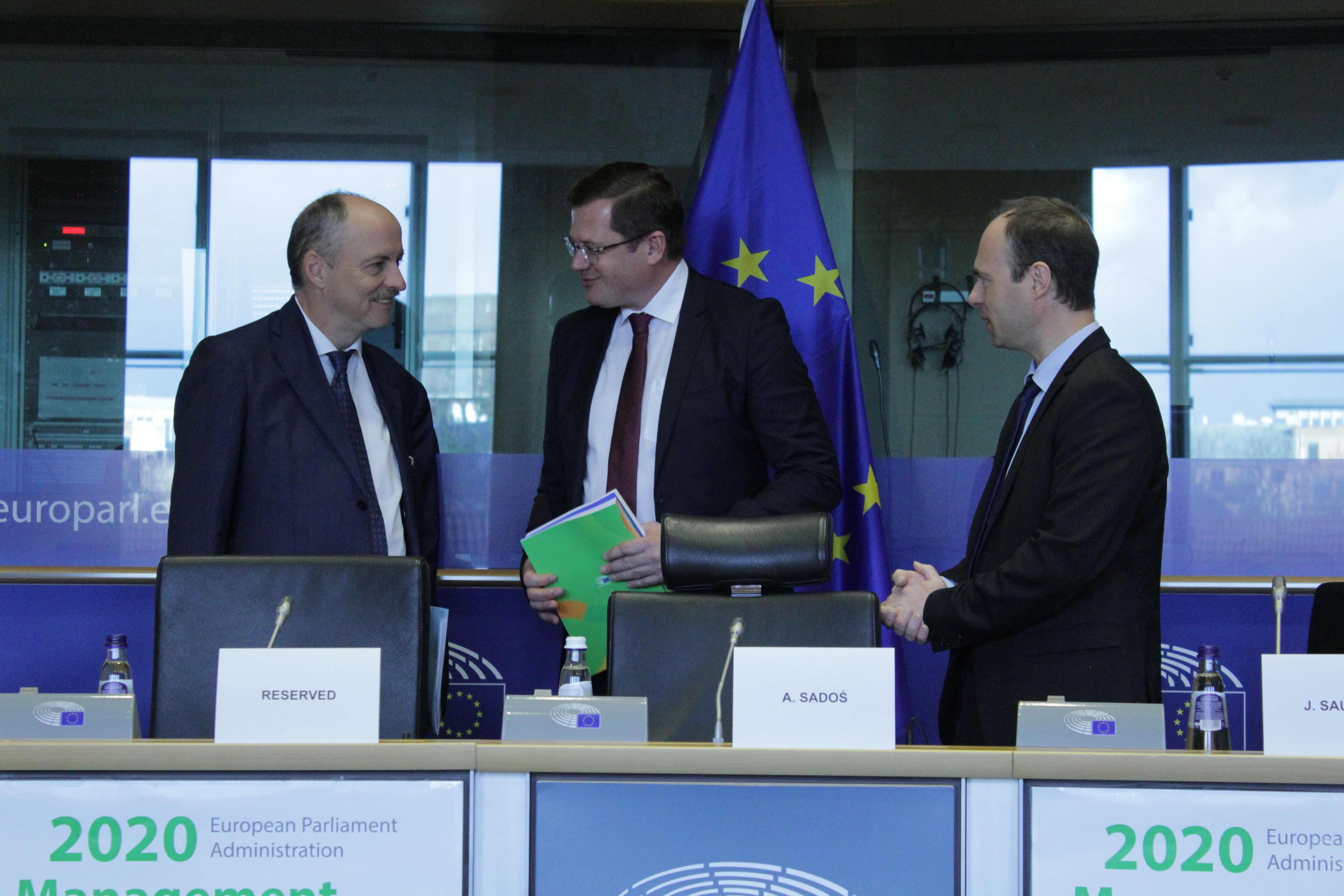Future of Europe discussed at the European Parliament's conference
10.01.2020
The European Parliament Management Innovation Day conference brought together 365 top-level officials of the European Commission, the General Secretariat of the Council and the European Parliament. Amongst the panelists was the Permanent Representative of the Republic of Poland to the EU Andrzej Sados who presented Poland's position on building a strong EU economy.

New challenges such as climate, globalization, digitization, communication, transport, energy, external and internal security, and migration require sources of funding. The discussion on climate neutrality presupposes the preparation of budgetary instruments. An example of changes in the strategic approach is the increase in investment in European defense capabilities. For the first time in history, the EU intends to allocate significant funding to projects through the European Defense Fund.
The current institutional cycle is crucial for protecting Europe from marginalization, e.g. if we want to ensure the EU's digital power status. The single market is the basis for the prosperity, growth, development and international competitiveness of the EU, it is the greatest achievement of the European project and a guarantee of the strong economic and political position of the European Union in the world. The goal of deepening the single market should be the highest possible level of economic integration. We warn against fragmentation of the single market, unnecessary differentiation of legislation, protectionism, and excessive levels of regulation, including in the digital sector.
Environmental and climate problems should be considered comprehensively, through activities in many sectors and areas. We should pay more attention to the transfer of energy-intensive industries to developing countries with lower environmental requirements. Our entrepreneurs will not be able to compete on an unequal basis with entities that are not subject to comparable burdens. Real capital is employees, their skills, knowledge and economic awareness. The "green transition" is associated with significant costs and challenges, including social challenges, attempting to revive the EU economy requires balancing key elements.



